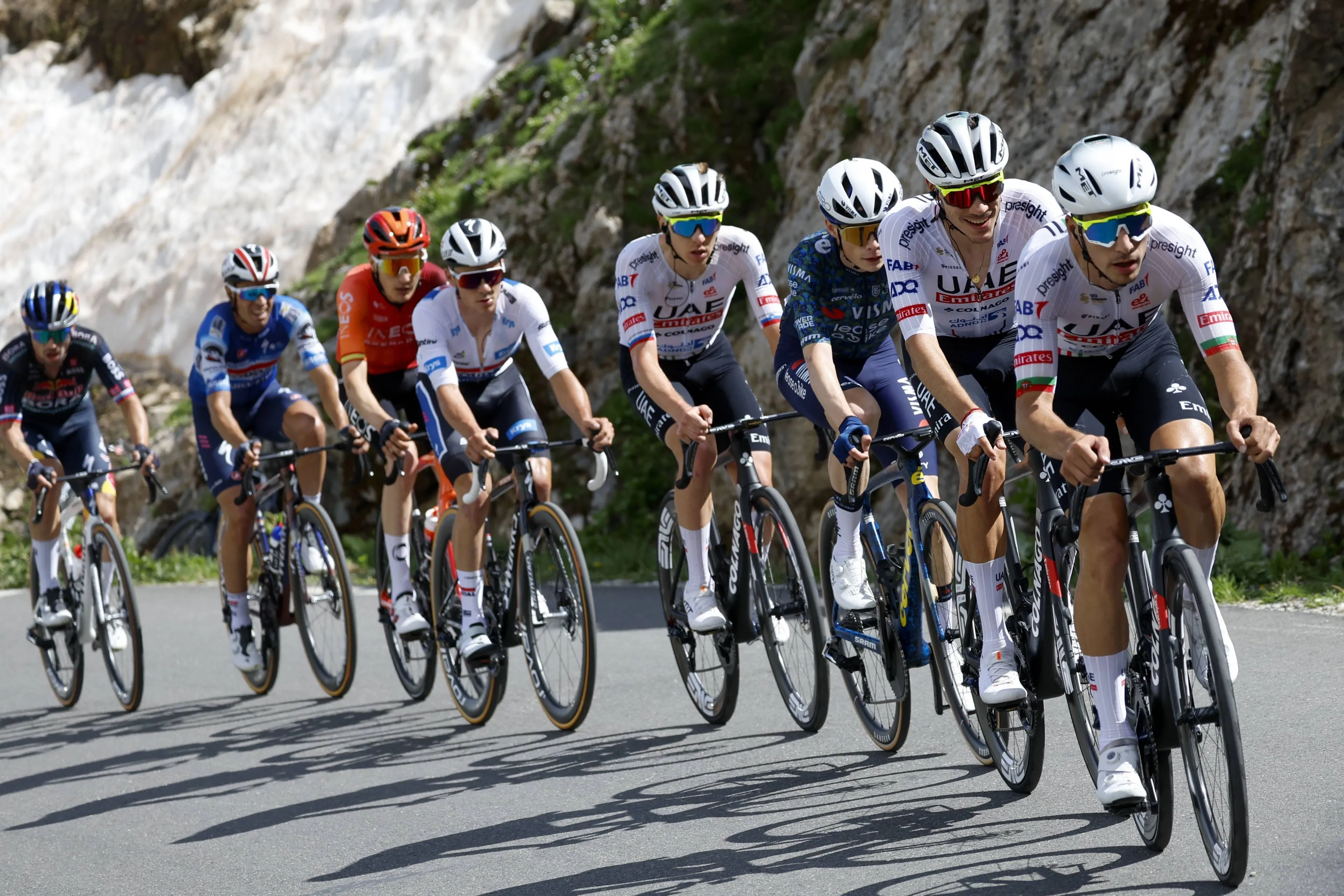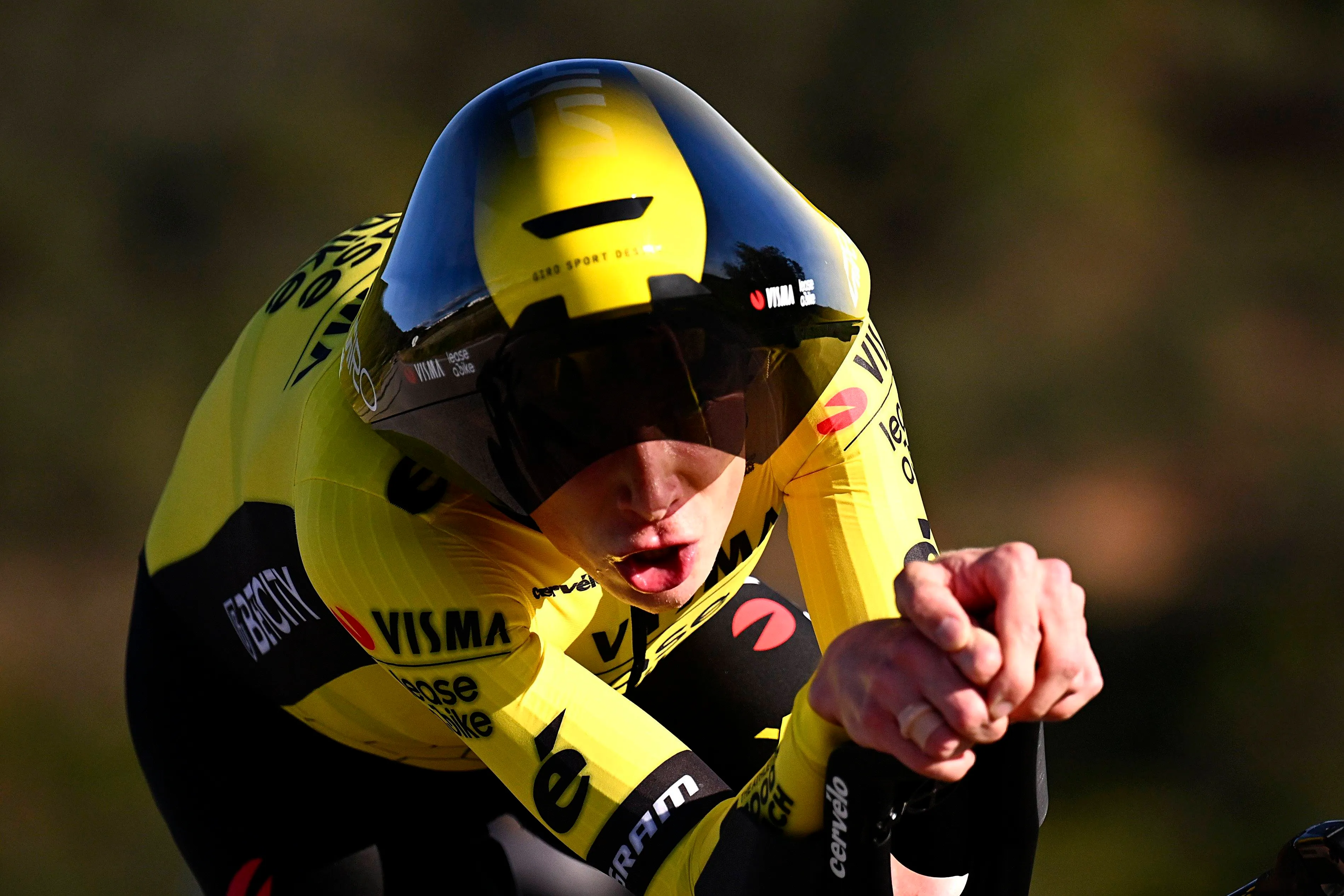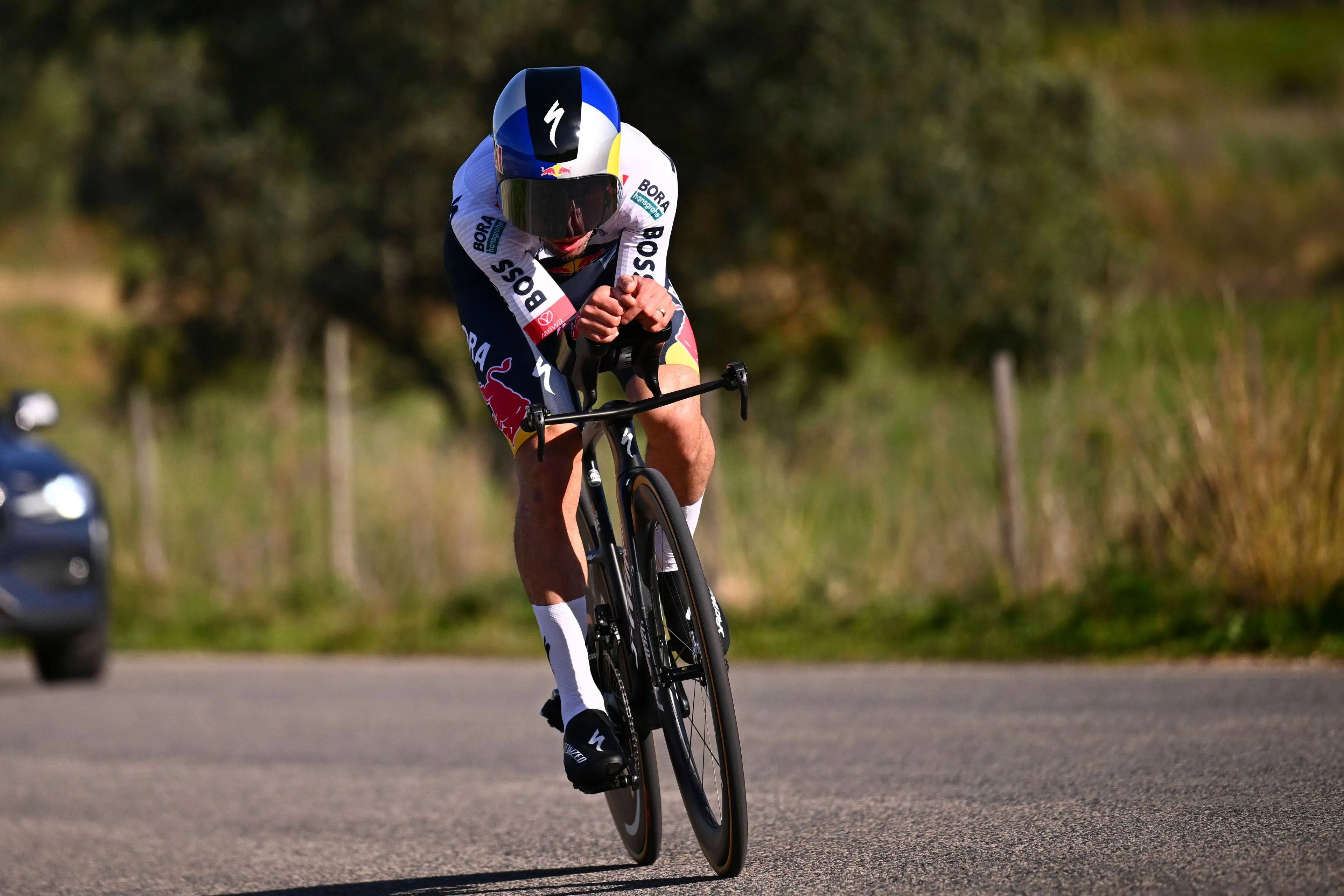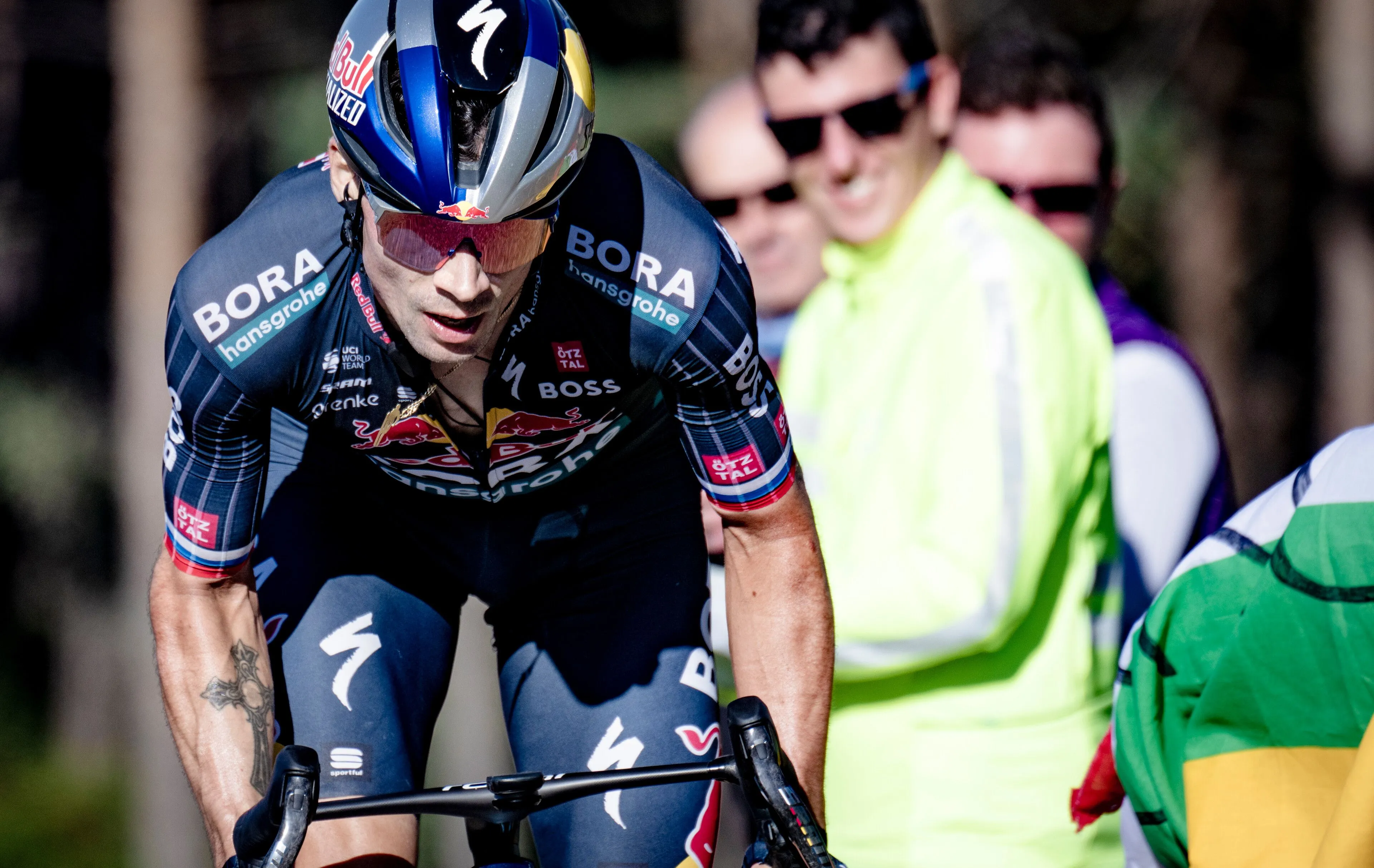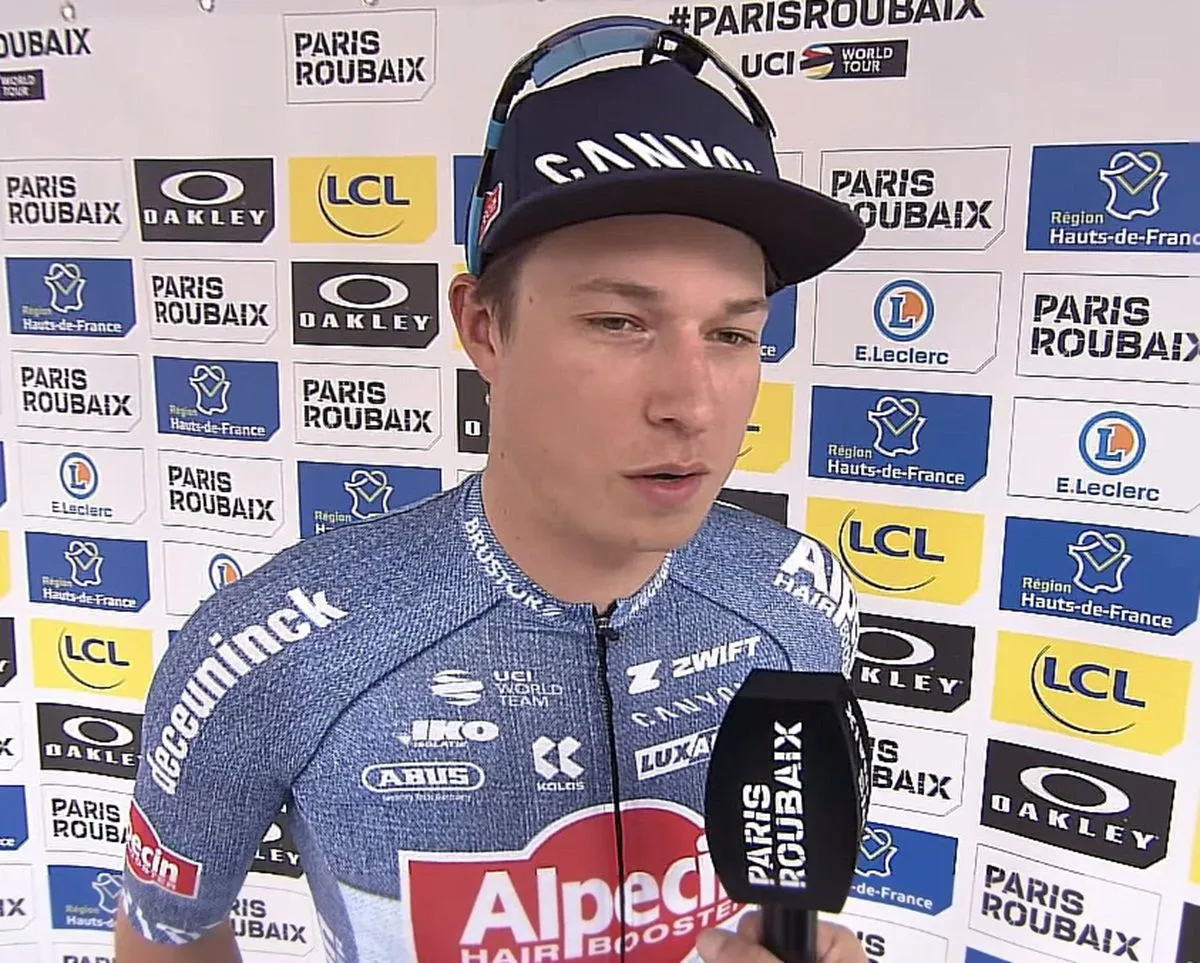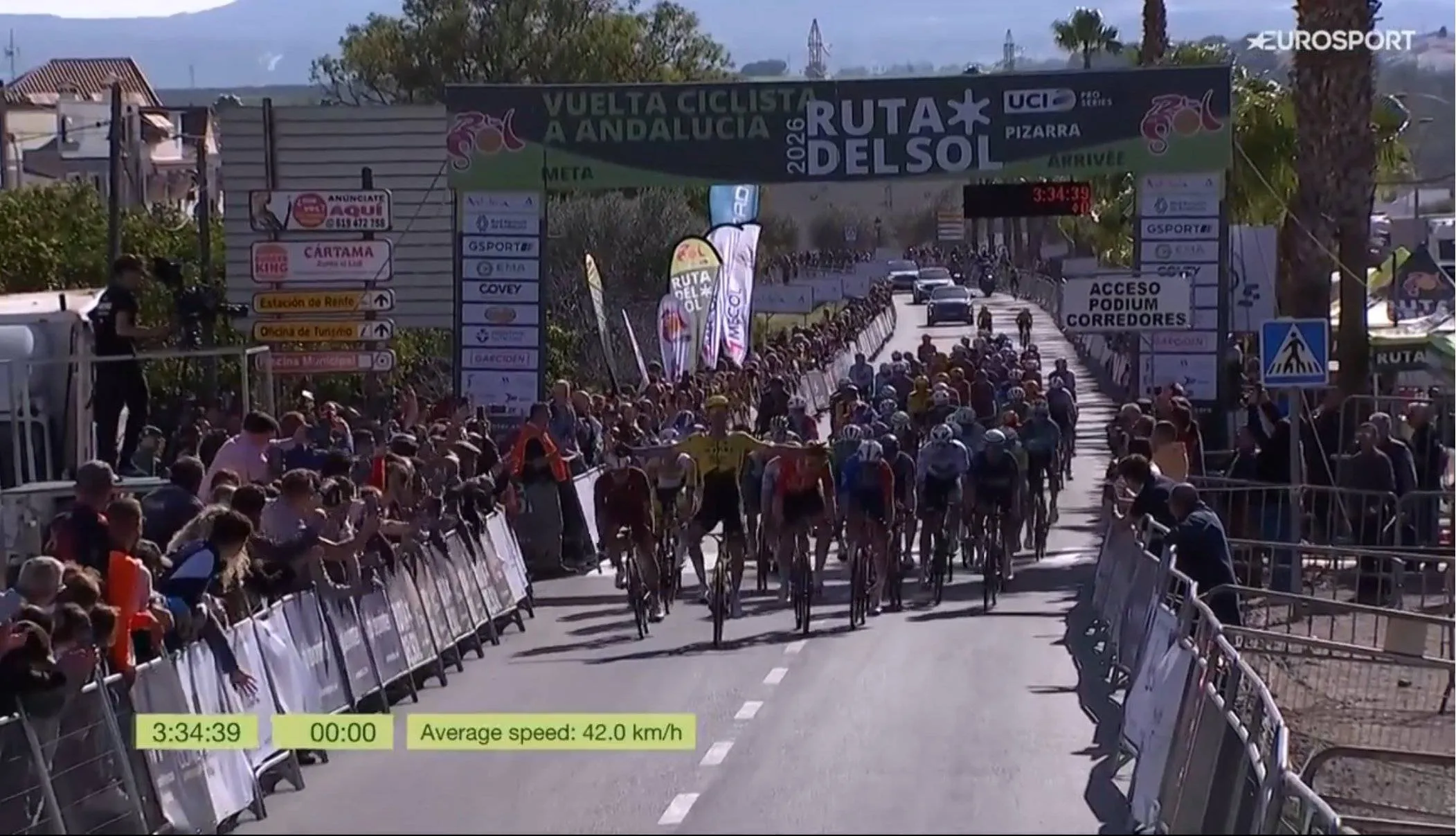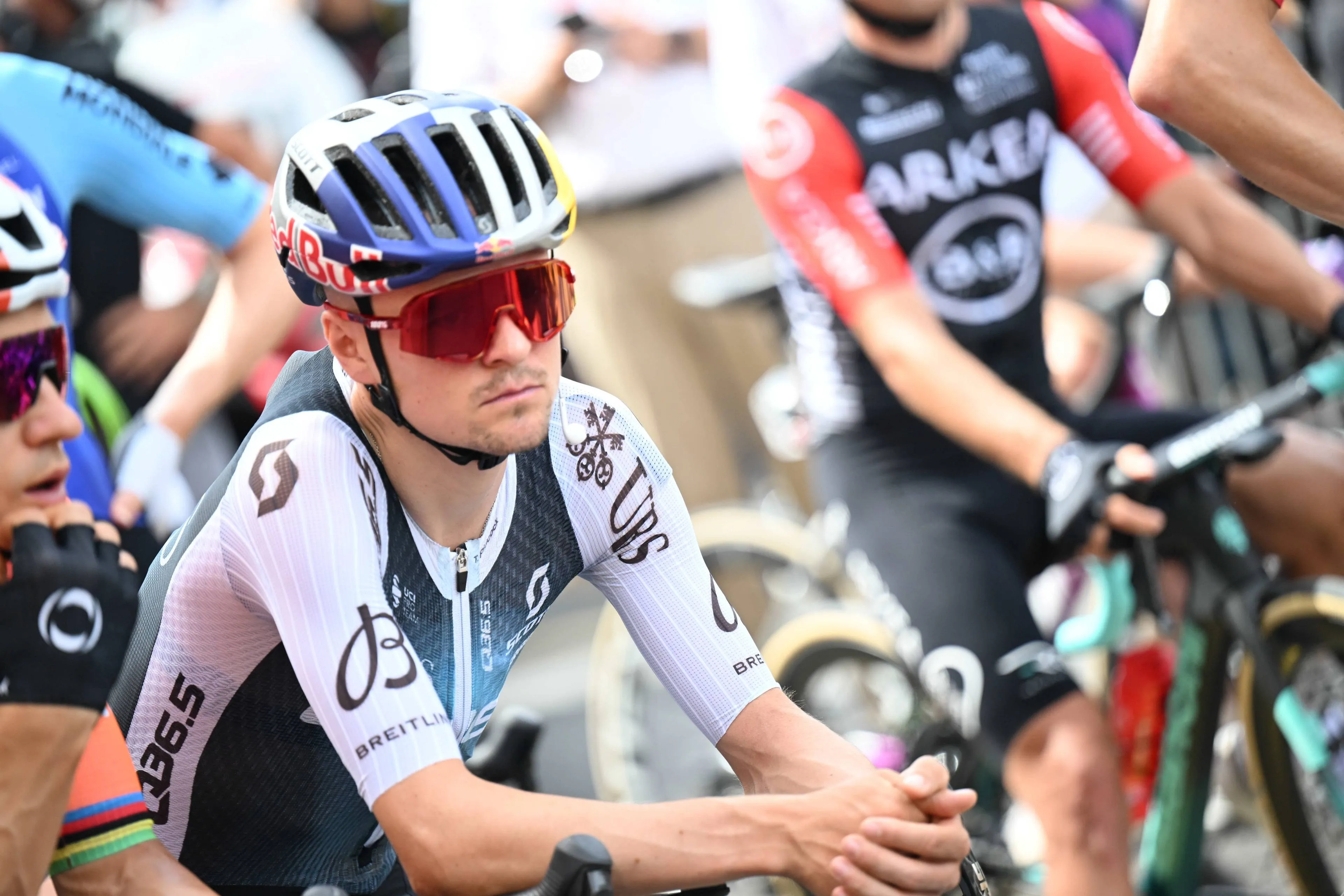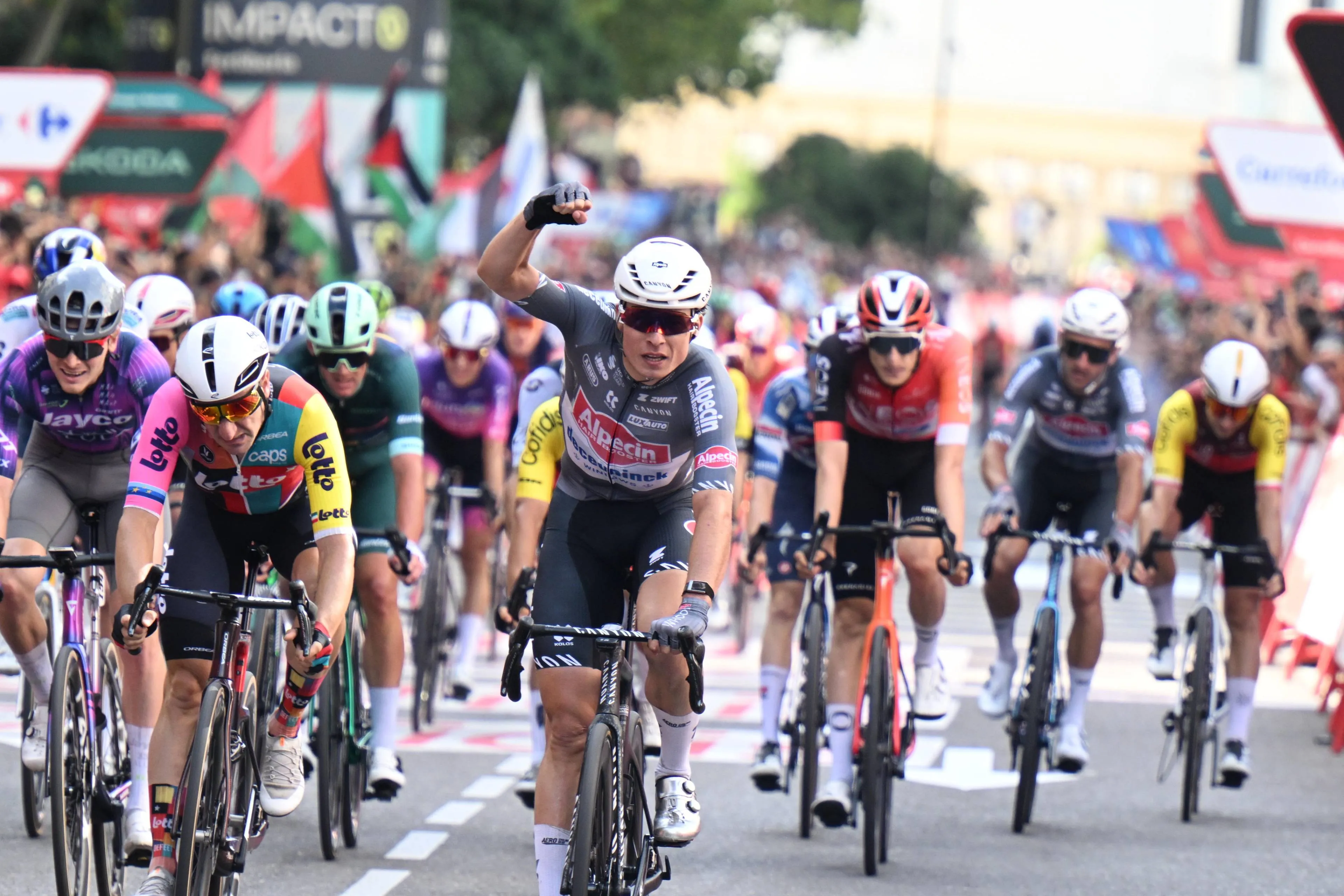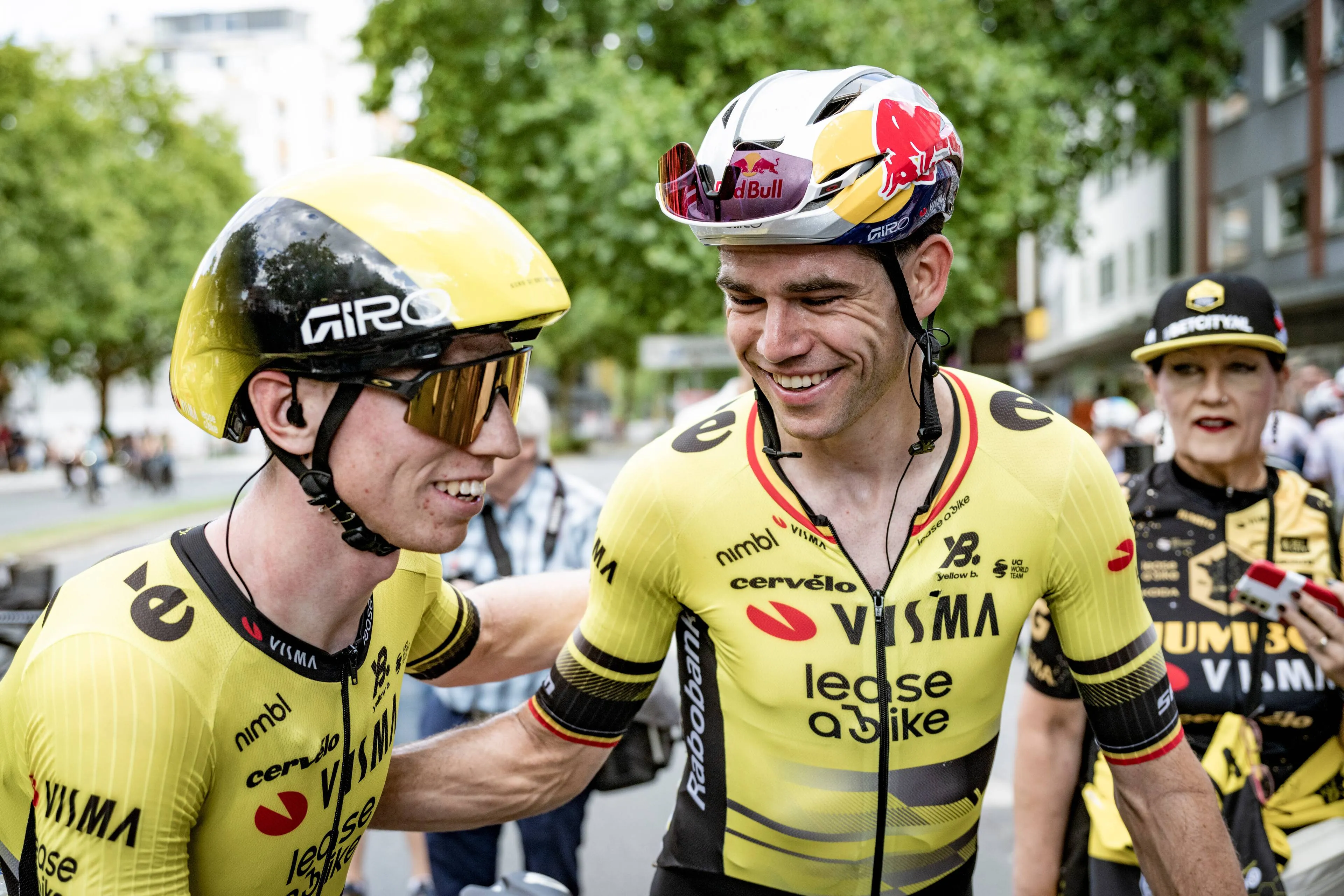“Lance sent a doctor to Italy at his own expense to try to cure my mother” – Ivan Basso talks Giro d’Italia glory, Lance Armstrong, and redemption
CyclingWednesday, 26 February 2025 at 09:34
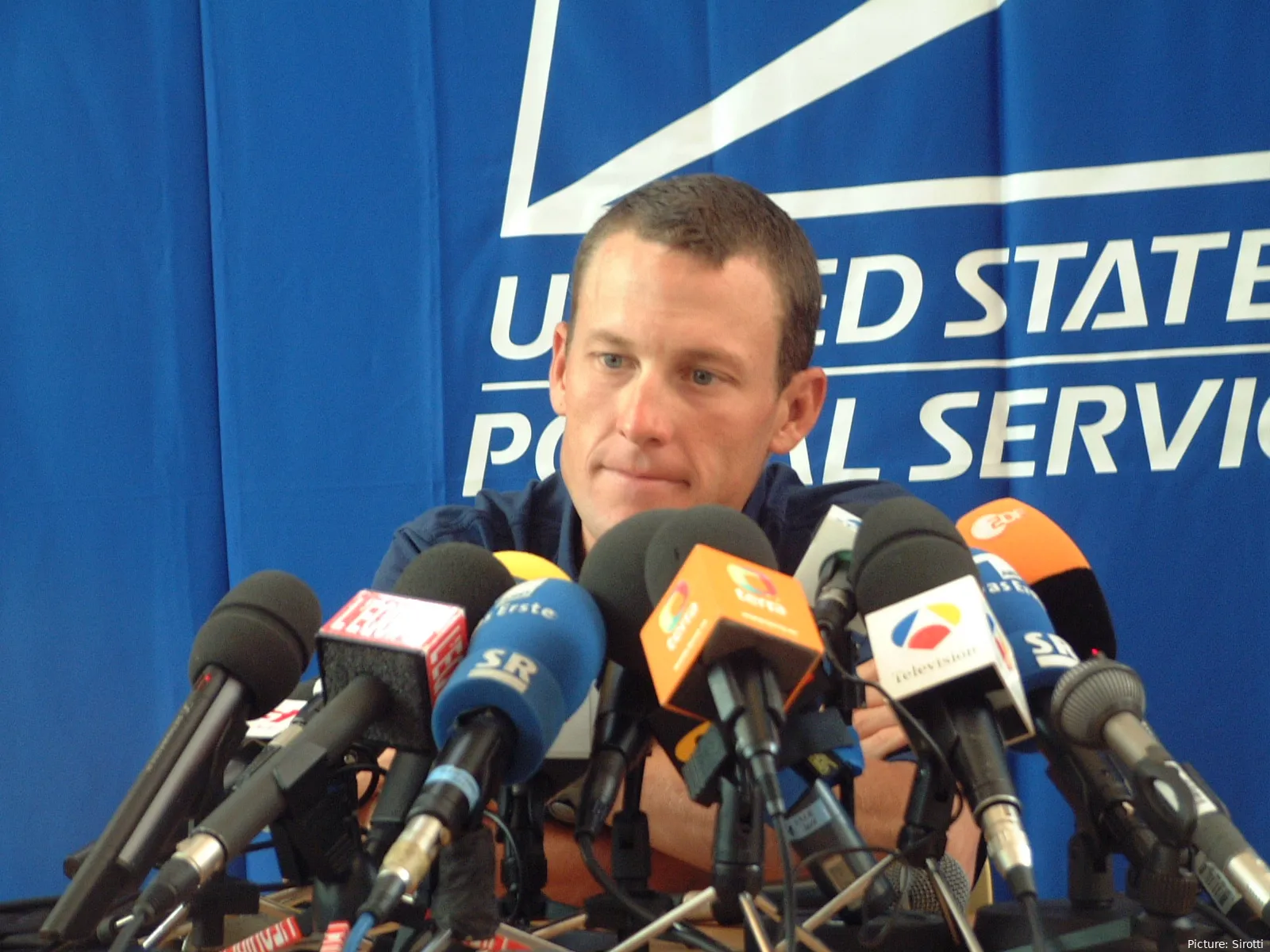
Ivan Basso’s career is one of the most fascinating of the 21st
century. A two-time Giro d'Italia winner in 2006 and 2010, he also claimed the
young rider classification at the 2004 Tour de France. However, his reputation
was tarnished when he was implicated in the infamous Operación Puerto
doping scandal in 2006. After serving his suspension, he made a remarkable
comeback, winning the Giro again in 2010.
Since retiring in 2016, Basso has dedicated himself to
rebuilding Italian cycling, which has been in a difficult place for some time.
He founded Team Polti VisitMalta, a professional squad designed to revive the
country's struggling cycling scene and nurture young talent.
In an interview with Corriere della Sera, Basso
opened up about how cycling became an escape from a difficult upbringing.
"I was an only child in a complicated family. My mother
Nives and my father Franco ran a butcher's shop, they confused life and work
and argued a lot and all the time. I didn't understand the reasons for their
arguments, but I suffered from the screams and the big words that flew around
the rooms. First the tricycle and then the bike were my lifelines: to escape
the screams I would run away and find peace by endlessly going round in circles
in the courtyard."
That need for comfort soon turned into a passion.
That need for comfort soon turned into a passion.
Read also
"Then I continued my escape, switching from tricycle to
racing bike. First race at seven years old, won. Second the following month in
my hometown, Cassano Magnago, won. I always won. At that point I understood two
things.
“The first is that I felt like I was born to pedal; the second is that my successes had a profound therapeutic effect on my family. When my parents came to see me, that is, every Sunday, they were happy and didn't argue for days.
“The first is that I felt like I was born to pedal; the second is that my successes had a profound therapeutic effect on my family. When my parents came to see me, that is, every Sunday, they were happy and didn't argue for days.
“The maniacal diligence in living the life of a cyclist that
accompanied me throughout my career was born unconsciously as a child to keep
peace between my parents: I was afraid that if I wasn't focused enough they
would start arguing again. There are those who start pedalling because they fall
in love with a beautiful bike in a shop window; I because, even though I was
very small, I wanted to prolong that truce indefinitely."
Read also
Basso quickly emerged as a prodigious talent. Inspired by
cycling legend Francesco Moser, he tackled major climbs from a young age.
"At eight I rode a mountain bike and got into the mud
because I wanted to imitate my idol Moser when he rode the Roubaix. At eleven I
climbed the Aprica, at twelve I climbed the Stelvio convincing my parents to
take me to Bormio."
Success came naturally. He dominated junior racing and was a
favourite for the world title, only to be denied by a puncture.
"I won a lot, almost everything: I lost a world title
among the juniors in the final due to a puncture, but I won the amateur title
by arriving alone at the finish line. I was cheered, fought over by the teams,
pampered by the fans. I was the boy prodigy who was realizing his dream."
Read also
Basso’s relentless commitment to the sport was clear, and he
was ready to everything to reach the top.
"Hard work is an overestimated concept. You can train
hard work, like muscles. It's hard to do a task you don't like or aren't
capable of managing every day. This is true for professionals but also for
those who work in an office. But you can make hard work your friend if you
overcome your mental limits."
Operación Puerto
Basso's career took a dramatic turn in 2006 when he was
implicated in Operación Puerto, a large scale Spanish investigation into
doping. The scandal revealed that he had stored blood for future transfusions, though
he insists he never actually used it.
"In Madrid I had two bags of blood taken that I would
then have injected before the Tour to have fresher red blood cells and go
faster. But in an investigative operation by the Spanish police they found the
frozen bags, mine and others, and by associating them with the DNA in the
federation's databases they identified me."
Read also
His drive to win at all costs had pushed him to the edge.
“I had grown up that way and nothing could stop me, I knew
what was happening but I didn't want to realize it. I thought I was
right."
Despite never completing the doping process, he acknowledged
his wrongdoing, "I didn't have time. But I know what I did, I recognize my
guilt, and I'm ashamed. But there are deeper motivations in what I did."
Basso was, of course, far from the only cyclist caught in
the scandal. Many top riders of that era, including Armstrong, Tyler Hamilton and
Alberto Contador, were implicated in doping cases.
Read also
In 2015, while riding as a domestique for Contador at the
Tour de France, Basso's career took another unexpected turn when he was
diagnosed with testicular cancer.
"In July 2015 I was competing in the Tour of France, at
that point as Alberto Contador's domestique. During the Pau stage I had a bad
fall. In the hospital, a CT scan found I had an advanced testicular tumour,
which needed immediate surgery. Without that accident, I might have discovered
it too late."
The diagnosis was particularly poignant given his past, "In
that same place, eleven years earlier, a doctor friend had called me to say
that the pancreatic cancer my mother was suffering from was terminal. I looked
back at my life, I realized that a chapter was closing."
Read also
During his recovery, Basso reflected on his friendship with
Lance Armstrong, the most controversial figure in cycling history.
"Lance for me is the man who (having survived a tumour)
sent a doctor to Italy at his own expense to try to cure my mother. I leave it
to others to judge his lies and his doping, for me he did something
enormous."
Now, Basso watches as his son Santiago embarks on his own
professional cycling career. However, he is determined not to influence his
journey.
Read also
"My son Santiago has just turned professional. He does
the same job as me, he doesn't wear the jersey of my team, I don't coach him,
he will make his own way if he has the means. Micaela and I feel happy thinking
that he works in a much more ethical world than the one I lived in, which has
no idea of what surrounded us and tempted us at his age."
claps 19visitors 19
Just in
Popular news
Latest comments
- Great champion Remco but his profile is more suitable for Ardennes-like races and tour with no very hard climbs. Not only Tadej and Vingegaard, there are a lot of younger cyclists (del Toro, Ayuso, maybe Seixas, Nordhagen and others) that will soon be big GC boys.
 maria2024202418-02-2026
maria2024202418-02-2026 - Evenopoel 1st real test, and he failedZamorano18-02-2026
- Remco is not the natural climber that riders like Tadej or Jonas are, no matter how much he trains and prepares for it. Yes, you can TT your way up moderately steep hills, but when the gradient gets super steep, he just can't keep up.
 santiagobenites18-02-2026
santiagobenites18-02-2026 - So against the better riders and a long mountain, Remco cracked. Sorry but way away from Pog and Jonasabstractengineer18-02-2026
- “I was portrayed as the devil" Bruyneel was really a talented team manager. His minor flaws: "coordinated, well-funded, and sophisticated doping regime" "hand-in-hand in implementing the team-wide doping programme" "was involved in trafficking and administering prohibited substances and methods, including EPO, blood transfusions, testosterone, human growth hormone, and cortisone. Teammates testified that nothing significant happened without Bruyneel's knowledge and approval." "fostered an environment where doping was considered a "fact of life" and necessary for success, effectively making it a condition of survival on the team. He also participated in or assisted with the cover-up of positive tests and doping violations." Those quotes show Bruyneel's true talent.Cyclingnut18-02-2026
- Fed up hearing "their" voicesslappers6618-02-2026
- When you join Ineos , learning , time , no pressure go out of the windowabstractengineer18-02-2026
- The UCI screws up againcaptmike18-02-2026
- No matter what people say - I'll watch it. And I bet all the complainers will do it too....averagecyclist18-02-2026
- Exactly what I'm thinking about it. Moreover Van Glis had a lot of time to rethink his situation but decided to stay where he was.averagecyclist18-02-2026
Loading
2 Comments

